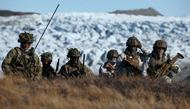Nature’s Janitors in Danger

But for all their bad associations, vultures are absolutely essential to the ecosystem for their role in cleaning up carcasses, which would practically be piling up without vultures around to clean them up. When predators score a kill, they leave a carcass behind. With the exception of those that hunt in packs such as wolves, most predators are solitary killers. Once one and its young have eaten their fill, it simply leaves the carcass; lions and cheetahs do not have refrigerators to store meat for later. Carcasses are also created when animals die of disease or other natural means. Bacteria and insects assist in breaking down the corpses, but work much slower and can help spread disease. Vultures have highly corrosive stomach acid which lets them devour large quantities of meat and, despite their reputation for uncleanliness, also neutralizes toxins in decaying flesh, stopping the spread of diseases from carcasses. Without vultures, dead bodies would linger longer, insect populations would boom, and diseases would spread-to people, livestock, and other wild animals.
Vultures are in danger due to pesticides being used by farmers on carcasses of their livestock, since 2006. The farmers just want to stop predators from killing their livestock, but it also has the unintended consequence of killing the vultures who eat from these carcasses. Also, poachers kill vultures often because vultures circling above a kill can reveal their illegal activities to rangers. They are now the most threatened avian functional group in the world. Many solutions have been proposed, one of which is the use of flashing lights to keep predators away from livestock, ending the need for vulture poisoning. It is the most cost-effective and safe approach to protecting both livestock and vulture; they cost around $250, so if one prevents at least one cattle predation, it has already paid for itself (the average bull is around $300). Currently, use of these light arrays is not widespread but is growing rapidly. Hopefully solutions like this gain traction over the next few years and bring vultures back from the brink of extinction.
<Michael Linde, La Canada High School 11th Grade>
스마터리빙
more [ 건강]
[ 건강]이제 혈관 건강도 챙기자!
[현대해운]우리 눈에 보이지 않기 때문에 혈관 건강을 챙기는 것은 결코 쉽지 않은데요. 여러분은 혈관 건강을 유지하기 위해 어떤 노력을 하시나요?
 [ 건강]
[ 건강]내 몸이 건강해지는 과일궁합
 [ 라이프]
[ 라이프]벌레야 물럿거라! 천연 해충제 만들기
 [ 건강]
[ 건강]혈압 낮추는데 좋은 식품
[현대해운]혈관 건강은 주로 노화가 진행되면서 지켜야 할 문제라고 인식되어 왔습니다. 최근 생활 패턴과 식생활의 변화로 혈관의 노화 진행이 빨라지고
사람·사람들
more많이 본 기사
- 트럼프 행정부, 미네소타서 “최대 규모” 이민단속…주정부 반발
- 연방정부, 5개 주에 저소득층 아동 예산 보류… “사기 우려”
- 정의선, 젠슨 황 회동…엔비디아·삼성·LG·퀄컴과 전방위 협력 행보 [CES 2026]
- 트럼프 “베네수産원유 최대 5천만배럴 美 인도”…석유이권 속도전
- “美국무, 그린란드 군사작전 검토설 부인… ‘매입이 목표’ 발언”
- 브라운대·MIT 총격범 “3년 계획…사과 않을 것” 영상
- 베네수엘라 석유 수출 재개되나… “셰브론, 유조선 투입”
- 美, 1만5천 달러 비자 보증금 적용 국가 38개로 확대…베네수 포함
- 니콜 키드먼·키스 어번, 공식 이혼…19년 결혼 마침표
- ‘결혼 28년 차’ 오연수, ♥손지창과 행복한 줄 알았더니.. “걱정없는 집 없어”
- 대법원, 9일 중대사건 판결…상호관세 운명 결정되나
- ‘기다림’이 만들어낸 동심의 세계⋯김인옥 작가 개인전
- [CES 2026] 젠슨황 “알파마요, 테슬라와 생태계 달라…곧 무개입 자율주행”
- “그동안 MLB 볼 판정 부정확→ABS 진작 필요했다” 美 CBS 냉철 분석
- 트럼프, 與의원들에 “중간선거 꼭 이겨야…지면 탄핵소추당할것”
- 머스크의 xAI, 엔비디아 업고 200억달러 자금 추가 조달
- 지역사회 AI데이터센터 반대 확산…중간선거 쟁점 조짐
- 공화 현역 7선의원 별세…하원서 공화 ‘아슬아슬’ 다수당
- “작년 LA 산불지역 재건축 착수 주택 ⅓뿐…비용·절차 난항”
- 폭우 후 기온 내려가 주말까지 맑고 쌀쌀
- 렌트 3% 상한시대… LA 주거정책 ‘대변혁’
- ‘안면 인식’으로 불체자 확인·체포한다
- CES 2026 ‘통합 부산관’ 운영…13개 기업 혁신상 수상
- [화제] 참치 한 마리에 ‘325만불’… 역대 최고가 경신
- “물가와 상관없다” 더니… 트럼프, … 1
- “美, 베네수와 원유 수출방안 논의”…석유 제재 해제 수순 전망
- 올해 VA 페어팩스 집값… “싱글홈 웃고 콘도는 글쎄”
- 송지우, 목욕탕서 팬과 아찔한 만남.. “나체로 라이브 감행”[우발라디오]
- Ramen 아닌 Ramyeon…옥스퍼드사전에 K단어 2년 연속 올라
- “위대한 인물” NYT, 故 안성기 부고 기사.. ‘장남’ 안다빈 공유
- 美국무부 “이것은 우리의 반구”…서반구 장악 의지 노골화
- DC 보안 강화, 마두로 체포로 인해 ‘초비상’
- 타국에서, 다시 ‘우리’를 생각하다
- 혈압·혈당·콜레스테롤 개선하려면 체중 3.5㎏ 줄여라
- [CES 2026] 젠슨 황 “메모리 공급부족 걱정안해…HBM4는 우리가 독점사용”
- 항공 여행객 정보 ICE와 공유 “비시민권자 비행기 탑승시 주의”
- 75세 박원숙, 분장실서 쓰러졌다 “쉬어야 한다는 자각 못해”
- 이민단속에 안면인식 앱까지 동원
- [신년 집중기획/ 2026 새해 이렇게 바뀐다 - 주택] 아파트 냉장고 제공 ‘의무화’
- 도널드 W 부시와 이라크 전의 추억
- [CES 2026] 10초 카운트다운에 환호성…전시장 개막부터 ‘북적’
- 故 안성기 장남인 미술가 안다빈, 아버지를 보내며..
- TSA, 승객정보 ICE 공유 국내선 탑승자들도 체포
- 겨울 폭우에 ‘움푹’… 남가주 ‘팟홀 대란’
- 李대통령 방중기간 日제재 발표한 中…한미일 ‘갈라치기’ 시도?
- “생닭 뜯는 故 안성기, 경악스러워”..배현진, 조문 태도 논란
- “트럼프, 마두로보다 물가 먼저 잡아야”
- 뉴욕증시 연초 랠리 지속…다우지수 첫 49,000선 돌파 마감
- 李대통령, 상하이 임시정부 청사 방문…3박 4일 국빈방중 마무리
- “그린란드 일, 덴마크·그린란드가 결정”…유럽, 트럼프 견제구
1/5지식톡

-
 미 육군 사관학교 West Poin…
0
미 육군 사관학교 West Poin…
0https://youtu.be/SxD8cEhNV6Q연락처:wpkapca@gmail.comJohn Choi: 714-716-6414West Point 합격증을 받으셨나요?미 육군사관학교 West Point 학부모 모…
-
 ☝️해외에서도 가능한 한국어 선생님…
0
☝️해외에서도 가능한 한국어 선생님…
0이 영상 하나면 충분합니다!♥️상담신청문의♥️☝️ 문의 폭주로 '선착순 상담'만 진행합니다.☎️ : 02-6213-9094✨카카오톡ID : @GOODEDU77 (@골뱅이 꼭 붙여주셔야합니다…
-
 테슬라 자동차 시트커버 장착
0
테슬라 자동차 시트커버 장착
0테슬라 시트커버, 사놓고 아직 못 씌우셨죠?장착이 생각보다 쉽지 않습니다.20년 경력 전문가에게 맡기세요 — 깔끔하고 딱 맞게 장착해드립니다!장착비용:앞좌석: $40뒷좌석: $60앞·뒷좌석 …
-
 식당용 부탄가스
0
식당용 부탄가스
0식당용 부탄가스 홀세일 합니다 로스앤젤레스 다운타운 픽업 가능 안녕 하세요?강아지 & 고양이 모든 애완동물 / 반려동물 식품 & 모든 애완동물/반려동물 관련 제품들 전문적으로 홀세일/취급하는 회사 입니다 100% …
-
 ACSL 국제 컴퓨터 과학 대회, …
0
ACSL 국제 컴퓨터 과학 대회, …
0웹사이트 : www.eduspot.co.kr 카카오톡 상담하기 : https://pf.kakao.com/_BEQWxb블로그 : https://blog.naver.com/eduspotmain안녕하세요, 에듀스팟입니다…
케이타운 1번가
오피니언
 민경훈 논설위원
민경훈 논설위원도널드 W 부시와 이라크 전의 추억
 황의경 사회부 기자
황의경 사회부 기자 타국에서, 다시 ‘우리’를 생각하다
 박원곤 이화여대 북한학과 교수
박원곤 이화여대 북한학과 교수 [백상논단] 붉은 말의 해, 한반도에 다시 오는 분기점
 홍용희 수필가
홍용희 수필가 [화요칼럼] 내 안의 바위
 송용창 / 한국일보 논설위원
송용창 / 한국일보 논설위원 [지평선] 베네수엘라 석유 암투
 조동례
조동례 ‘달 도둑’

Crinks 세력이 크게 꺾이는 그런 해가…
 윤경환 서울경제 뉴욕 특파원
윤경환 서울경제 뉴욕 특파원 60년 만 ‘투자 귀재’ 없는 첫 주
 데이빗 이그나티우스 워싱턴포스트 칼럼니스트
데이빗 이그나티우스 워싱턴포스트 칼럼니스트 [데이빗 이그나티우스 칼럼] 신년맞이 퀴즈: 2026년에는 좋은 일이 있을까?
1/3지사별 뉴스

맨하탄 연방법원에 출두한 마두로 대통령 “나는 납치됐다”
미군에 의해 체포돼 부인과 함께 미국으로 압송된 니콜라스 마두로 베네수엘라 대통령이 5일 맨하탄 연방법원에 처음 출두해 모든 범죄 혐의를 부인…
이민단속에 안면인식 앱까지 동원

“헌법 무시”Vs“안보 강화”
미국이 3일 나콜라스 마두로 베네수엘라 대통령을 군사 작전으로 체포한 사건과 관련해, 워싱턴 지역 정치권은 상반된 반응을 보이고 있다. 정치인…
DC 보안 강화, 마두로 체포로 인해 ‘초비상’

‘안면 인식’으로 불체자 확인·체포한다
트럼프 행정부의 초강경 이민 단속 기조 속에 불법체류자 단속을 위해 안면 인식 기술이 본격적으로 활용되고 있어 논란이 커지고 있다. 4일 월스…
중부 캘리포니아 ‘한인 이민사’ 나왔다

오늘 하루 이 창 열지 않음 닫기 



















































.png)


댓글 안에 당신의 성숙함도 담아 주세요.
'오늘의 한마디'는 기사에 대하여 자신의 생각을 말하고 남의 생각을 들으며 서로 다양한 의견을 나누는 공간입니다. 그러나 간혹 불건전한 내용을 올리시는 분들이 계셔서 건전한 인터넷문화 정착을 위해 아래와 같은 운영원칙을 적용합니다.
자체 모니터링을 통해 아래에 해당하는 내용이 포함된 댓글이 발견되면 예고없이 삭제 조치를 하겠습니다.
불건전한 댓글을 올리거나, 이름에 비속어 및 상대방의 불쾌감을 주는 단어를 사용, 유명인 또는 특정 일반인을 사칭하는 경우 이용에 대한 차단 제재를 받을 수 있습니다. 차단될 경우, 일주일간 댓글을 달수 없게 됩니다.
명예훼손, 개인정보 유출, 욕설 등 법률에 위반되는 댓글은 관계 법령에 의거 민형사상 처벌을 받을 수 있으니 이용에 주의를 부탁드립니다.
Close
x